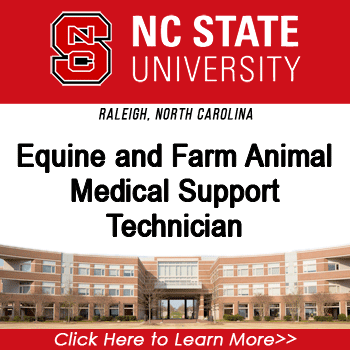
2025 Graduate - Autonomous Systems Design Engineer: Controls, Navigation, and Simulation
Job Description
DescriptionDo you enjoy solving diverse problems and applying your skills across a broad range of research and applications?
Do you have a passion for the design and simulation of innovative autonomous systems, sensors, and algorithms?
If so, the Strike Guidance, Navigation, Controls (GNC), and Seekers group is looking for newly graduating engineers, mathematicians, physicists, and scientists like you! Our group's goal is to ensure the United States has a distinct technology advantage in autonomous systems by leading the research and development of next generation technology. We do this by providing world class design solutions with a focus on multiple areas including:
- Guidance, Navigation, and Controls
- Radio Frequency (RF) or Electro-Optical/Infrared (EO/IR) Sensors
- Modeling and Simulation (M&S)
- Hardware/Software Development and Test
- Multi-Disciplinary Design Optimization
We are seeking creative problem solvers to join our team in taking on a breadth of technical challenges on a variety of systems including: hypersonic missiles, submarines, cruise missiles, and autonomous flight vehicles. We are committed to developing exceptional talent and fostering a culture of innovation, and as part of our group you will have the chance to grow your expertise across these technologies.
As a member of our team you will have the opportunity to...
- Pioneer design and research in guidance, navigation, and control algorithms in support of the full lifecycle development of advanced systems.
- Develop innovative models for simulating and analyzing a variety of complex physics.
- Test the capability of software and algorithms within an embedded systems environment.
- Apply multi-disciplinary optimization techniques to early phase vehicle designs.
- Develop software to support sophisticated simulation and algorithm development.
- Collaborate with a diverse team of engineers and interact with government sponsors.
- Team up with other guidance, navigation, and control engineers, working together to analyze, design, and implement control solutions to an array of systems.
Our team works on a diverse set of subject areas that feed into the design of an autonomous system. The following sections provide some more background on those unique areas:
Guidance, Navigation, and Control
- We provide world class expertise in advanced GNC algorithm research, development, and application to flight test systems.
- Skills: Guidance, inertial navigation, modern/adaptive control, classical control, optimization
Radio Frequency and Electro-Optical/Infrared Sensor
- We develop sensor and seeker solutions for advanced autonomous systems and weapons
- Types of work: RF and EO/IR system design, sensor and seeker performance analysis and M&S, and receiver signal processing
- Skills: Electromagnetic wave propagation, RF antennas, optics, signal and image processing, radar, programming/coding
Modeling and Simulation
- We develop multi-physics simulations for a broad range of concepts and to analyze multi-disciplinary design problems.
- Types of work: multi-disciplinary vehicle design optimization and analysis, high fidelity physics-based simulation modeling, algorithm development, simulation software architecture
- Skills: Dynamics, programming/coding, algorithms, optimization.
Hardware/Software Development and Testing
- We support sensor testing and characterization in conjunction with hardware-in-the-loop analysis for prototype systems advancing towards flight tests.
- Types of work: Hardware-in-the-loop development, sensor characterization, embedded systems.
- Skills: Hardware testing, embedded systems, software
Qualifications
You meet our minimum qualifications the job if you...
- Have a Bachelor's or Master's Degree in an Electrical, Mechanical, Aerospace or similar engineering field; Physics, Mathematics, or Computer Science.
- Have classroom experience one or more of our core skills: guidance and controls, modeling and simulation, inertial navigation, embedded systems, software development, artificial intelligence, optimization, and dynamics.
- Are skilled in or have knowledge of coding practices in Matlab/Simulink, C++, Python, or other languages
- Are able to obtain an Interim Secret security clearance by your start date and can ultimately obtain a Secret level clearance. If selected, you will be subject to a government security clearance investigation and must meet the requirements for access to classified information. Eligibility requirements include U.S. citizenship.
- Have a minimum 3.0 GPA on a 4.0 scale. Note: When prompted to upload attachments, please include a copy of your college transcripts (unofficial transcripts are acceptable).
You'll go above and beyond our minimum requirements if you...
- Have professional experience developing and analyzing control/dynamical systems or sensors.
Why work at APL?
The Johns Hopkins University Applied Physics Laboratory (APL) brings world-class expertise to our nation’s most critical defense, security, space and science challenges. While we are dedicated to solving complex challenges and pioneering new technologies, what makes us truly outstanding is our culture. We offer a vibrant, welcoming atmosphere where you can bring your authentic self to work, continue to grow, and build strong connections with inspiring teammates.
At APL, we celebrate our differences and encourage creativity and bold, new ideas. Our employees enjoy generous benefits, including a robust education assistance program, unparalleled retirement contributions, and a healthy work/life balance. APL’s campus is located in the Baltimore-Washington metro area. Learn more about our career opportunities at www.jhuapl.edu/careers.
About Us
APL is an Equal Opportunity/Affirmative Action employer. All qualified applicants will receive consideration for employment without regard to race, creed, color, religion, sex, gender identity or expression, sexual orientation, national origin, age, physical or mental disability, genetic information, veteran status, occupation, marital or familial status, political opinion, personal appearance, or any other characteristic protected by applicable law.
APL is committed to promoting an innovative environment that embraces diversity, encourages creativity, and supports inclusion of new ideas. In doing so, we are committed to providing reasonable accommodation to individuals of all abilities, including those with disabilities. If you require a reasonable accommodation to participate in any part of the hiring process, please contact Accommodations@jhuapl.edu. Only by ensuring that everyone’s voice is heard are we empowered to be bold, do great things, and make the world a better place.
The referenced pay range is based on JHU APL’s good faith belief at the time of posting. Actual compensation may vary based on factors such as geographic location, work experience, market conditions, education/training and skill level with consideration for internal parity. For part-time salaried employees, annual salary will be prorated based on the number of hours worked. APL may offer bonuses or other forms of compensation per internal policy and/or contractual designation. Additional compensation may be provided in the form of a sign-on bonus, relocation benefits, locality allowance or discretionary payments for exceptional performance. APL provides eligible staff with a comprehensive benefits package including retirement plans, paid time off, medical, dental, vision, life insurance, short-term disability, long-term disability, flexible spending accounts, part-time study and training and development. Applications are accepted on a rolling basis.
Minimum Rate
$85,000 Annually
Maximum Rate
$150,000 Annually
*Please mention you saw this ad on SciencePositions.*
Be Seen By Recruiters at the Best Institutions
Create a FREE Profile to be Seen!






